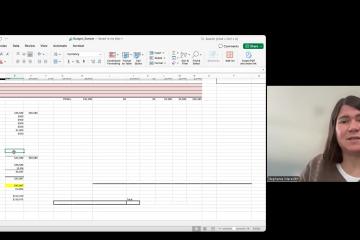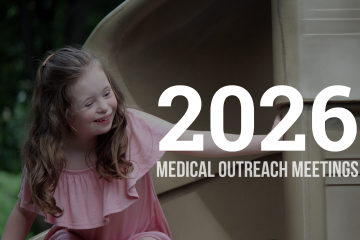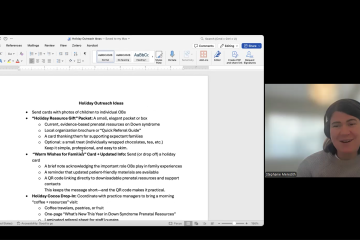During this month’s Medical Outreach Meeting, Dr. Stephanie Meredith and Bill Gaventa discussed how we can reach new and expectant parents through faith-based organizations. See below for the presentation audio and slides, and read on for a written summary and extra resources!
Faith-Based Outreach
Faith communities are trusted sources of guidance in many communities, especially among people of color. They provide social support, access to networks and events, and a sense of belonging and hope. Many new and expectant parents turn to their church or pastor first when receiving unexpected news, making faith-based organizations an important place to build connections and reach families.
Goals of Faith-Based Outreach
- Share accurate, up-to-date resources about Down syndrome
- Reduce stigma and increase acceptance within faith communities
- Connect new and expectant parents with local and national support networks
- Build long-term partnerships with trusted leaders
Principles of Faith-Based Outreach
- Relationships: Start by listening to pastors, priests, and lay leaders
- Integration: Join existing disability ministries and programs
- Representation: Reach out to diverse faiths and demographic groups
- Consistency: Commit to being present beyond one-time events
Local Action Plan
- Identify 3–5 local churches/parishes with diverse faith, race, and cultural backgrounds.
- Reach out to faith leaders and listen to and learn about their needs.
- Offer to co-host one event in the next 6 months.
- Train at least 5 congregation leaders on Down syndrome resources.
- Develop a resource packet (bilingual if needed) tailored for faith settings.
Insights from Bill Gaventa
Bill Gaventa is the founder and Director Emeritus of the Institute on Theology and Disability, the current Director of the National Collaborative on Faith and Disability, and the former Director of Community and Congregational Supports at the Boggs Center on Developmental Disabilities.
Bill Gaventa emphasized the importance of relationships and working with faith leaders by denomination or group. He suggested attending meetings where clergy gather, such as Baptist associational meetings or Methodist district gatherings, to introduce resources and support. See below for the many incredible resources you can share with clergy to help parents connect with other families and support services!
While about 1/3 of families have had negative experiences with their faith community after a disability diagnosis, both Dr. Meredith and Bill Gaventa share examples of positive experiences where churches have served as the place where children with disabilities feel most welcomed.
Bill Gaventa discussed the challenges clergy face in supporting people with disabilities, including thinking they need special training to relate to or help these families. We can help clergy by emphasizing that, in many cases, families are simply looking to feel welcomed and included. Clergy can create an inclusive environment by:
- Asking about their child and what they are like
- Listening to families, particularly hearing stories about mistrust or past rejections without being defensive
- Helping them get connected with other families (see resources below)
- Providing concrete help, such as translating information about education support or even attending IEP meetings and other important events
Bill Gaventa can be reached at bill.gaventa@gmail.com for further questions or resources!
Resources
Leaders in Faith & Disability
- Bill Gaventa (bill.gaventa@gmail.com)
- Amy Julia Becker
- Erik Carter
- Sierra Weiss
- Special Needs Ministry Leadership Forum
National Faith & Disability Resources
- Leaders in faith & disability: Bill Gaventa (bill.gaventa@gmail.com), Amy Julia Becker, Erik Carter, Special Needs Ministry Leadership Forum
- Disability Ministry Network
- Key Ministry
- MUHSEN
- National Catholic Partnership on Disability (NCPD)
- Center on Faith and Disability at Baylor
- Faith Inclusion Network
- Disability Belongs
- WITH Ministries
- Collaborative on Faith & Disability
- JCC Association of North America: Sierra Weiss
- Union for Reform Judaism – Disabilities Inclusion
- Joni & Friends
- AAIDD Religion & Spirituality Division
Additional Resources
In addition, Bill Gaventa shared the following resources that may be of interest to you all, including a talk he gave in Dallas about disability groups relating to faith communities.


